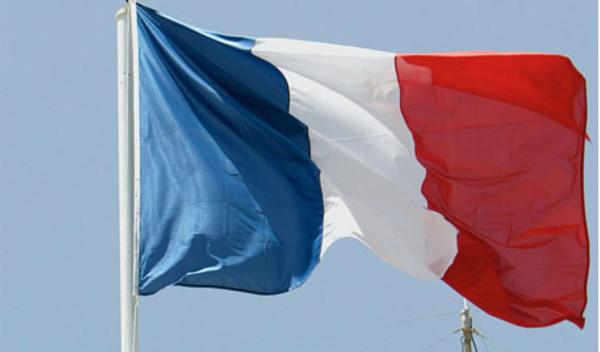

It has been reported for some time now that London is France’s sixth biggest city in terms of population, and many are wondering why a new generation of young French professionals are migrating to the English capital.
Much column space is regularly devoted to the situation of the French nationals who have set up life in London in significant but unquantifiable numbers attracted by the opportunities and challenges on offer and who have their own dedicated French schools and specialist shops and French language publications. Some are here on a temporary basis on short term contracts only, others will start to put down roots and acquire assets here or find love and decide to remain.
For those who end up staying and marrying a British national (or entering into a civil partnership in the UK), things start to get a lot more complex. Such couples have to realise that in getting married they have “by default” entered into a convoluted domain where the law has a real ability to impact on property ownership and potentially restrict their options and choices in the future.
Even if the assets involved seem relatively modest at the outset or their affairs appeared “straightforward”, the legal situation is still going to have an impact. Looking ahead, even the most seemingly simple step, such as acquiring a property together will require the couple to navigate successfully through various layers of rules which are intertwined within a Franco/British context by the private international rules in operation in France and England assisted where relevant by the Franco-British Tax treaties. The question of how to manage and how to plan for the future then suddenly takes on a different light as life has got a lot more involved.
Such couples may often own assets in both countries which have either been acquired during the marriage or before, by acquisition or succession. It will be important to define the family situation – for example, does the French national have children from a previous relationship who may have reserved heirship rights under French law? And how will this affect the rights of the couple’s own children or their planning in the UK?
The subject is a minefield for the unwary, and the reality can come as a nasty shock or at worse an expensive mistake. If we take say property ownership as an example - there is often a dangerous assumption that English and Welsh law will apply to the assets of the Franco-British couple in the same way as for any British couple resident in the UK. But consider the position on a transfer of an investment held in the UK from the sole name of the husband, a British national domiciled and resident in the UK to his French born wife – this is a fairly common occurrence for British couples motivated, for example, by tax considerations. But for the Franco-British couple this may be a case where due to the wife’s domicile for succession purposes she cannot simply decide to leave the asset outright to her husband on her death as a portion may be reserved to be inherited by her children on her death as a matter of right.
On the other side of the Channel, it is not unusual for well-meaning advice in France to be received by the couple from the family’s French notaire during a summer vacation visit. For instance, for a couple with children, a typical French estate planning structure would be to transfer the nue-propriété (bare interest) in a property to the couple’s children and for the couple to retain the usufruct (a sort of life interest) for their lifetimes. Such a step can reveal itself as being expensive and potentially ineffective when seen from a UK tax perspective.
Care has to be taken also when putting in place new wills to ensure for instance that a will in place in the other country is not inadvertently revoked or even for a new will to have effect over the whole estate when it was only intended to apply to a single asset in France. While it is usually recommended that a will be put in place in each jurisdiction, this can result in a failure to consider the impact on the total estate from a global tax and succession perspective with potential negative consequences.
Rather surprisingly perhaps the UK’s decision to leave the EU while in itself significant does not have any particular impact on the rules applicable to the Franco-British couple at this level as in particular the UK had already exercised its opt-out for the recently introduced EU Succession Regulation (EU 650/12) which entered into effect on 17 August 2015.
So how should the Franco-British couple proceed?
Solutions
• Take the time to ensure you are aware of the exact nature and ownership arrangements in place for each of the assets, for example, received on inheritance. This is the case particularly for French assets which can be complex and then take advice on both sides as to the proposed ownership structure before proceeding to acquire a new property in either country.
• Take advice before entering into gifts due to their long term effect and the potential tax consequences in both countries.
• If a move (return) to France on a permanent basis is envisaged, take advice and do not assume you know the answers, for example, a transfer of a UK portfolio to one spouse’s sole name with a view to benefitting from potential UK tax advantages may be taxable under French gift tax rules in France.
• Obtain specialist advice on succession and estate planning on a global basis having regard to long term plans.
• Aim to put in place wills for each country and ensure that they dovetail effectively having regard to the global impact of the succession and tax rules applicable.
Finally, it should be noted that Scottish law is distinct from English and Welsh law, and so different considerations may apply if Scottish law is involved.
Dawn Alderson is a partner at Russell-Cooke Solicitors LLP and dual qualified in English and French law
| Key Points |
In getting married, a French and British couple has “by default” entered into a convoluted domain where the law has a real ability to impact on property ownership. Such couples may often own assets in both countries which have either been acquired during the marriage or before. Care has to be taken also when putting in place new wills. |



